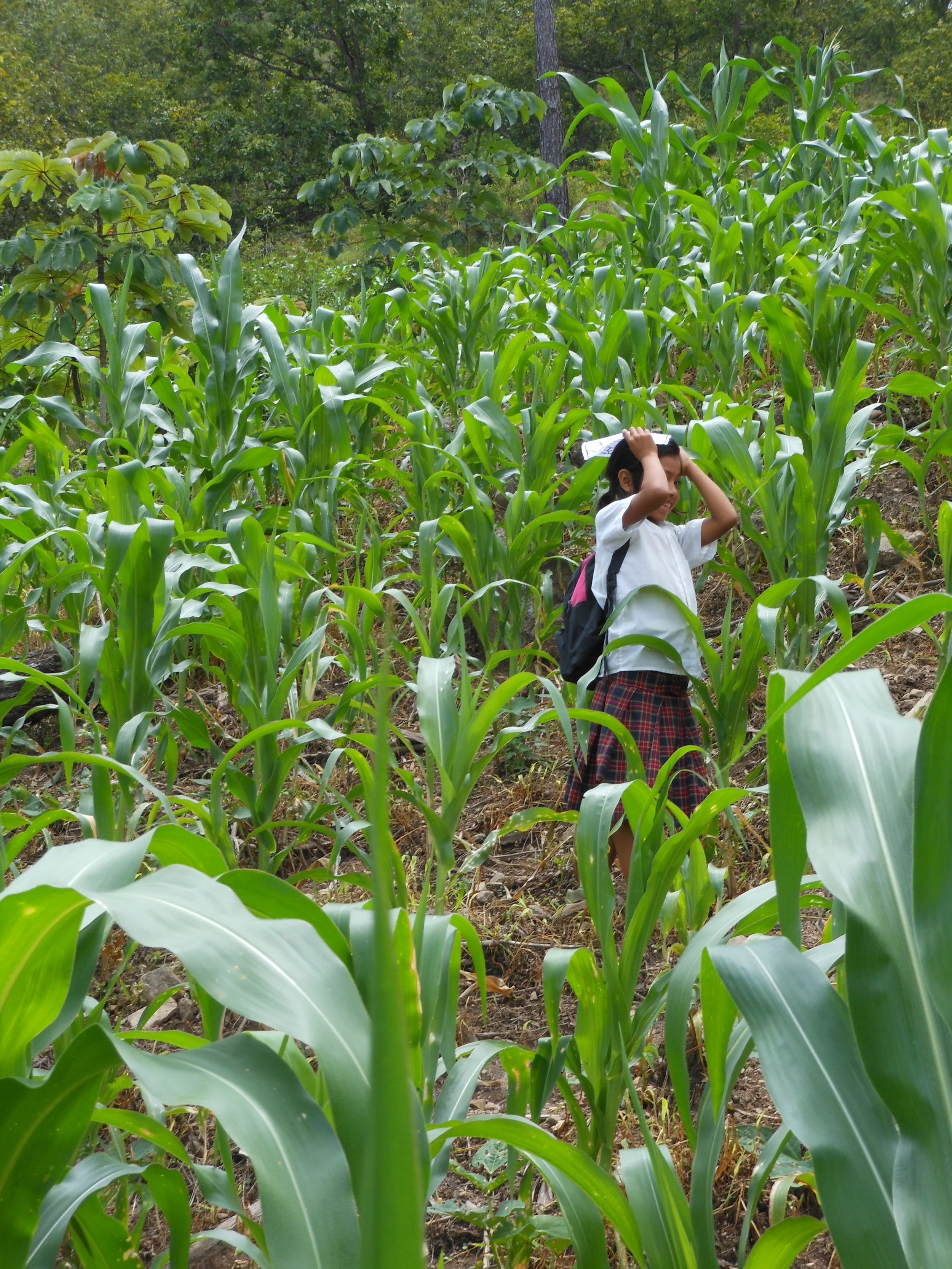Because of the lack of water resources, it is hard to keep healthy crops. By working with them to provide water, we are able to help with the agricultural situation. We are also helping build keyhole gardens and working to provide seeds of plants that will grow at that specific altitude, longitude and latitude through an organization called Hope Seeds with a goal of sustainable farming.
"The terrain also presents challenges to farming. High mountains and dense forests provide little agricultural space, and farming takes place predominantly on steep slopes. With few reliable water sources, farmers must rely on rainfall to irrigate crops.
Additionally, the degradation of natural resources in the country is intense, particularly as a result of the illegal exploitation of forests and slash-and-burn subsistence agriculture. The over-exploitation of land and water resources has resulted in lower productivity of basic crops, which has increased food insecurity for poor smallholder families. Food insecurity is compounded by volatile food prices, which severely affect subsistence farmers, day laborers and non-farming poor rural people.
At the same time, many studies show an increase in droughts – as well as hurricanes and even diseases such as malaria – linked to changing weather patterns in Guatemala and the rest of Central America. To adapt to climate changes, poor rural people have to change the way they plant crops, use forests and think about the environment."**
**Source: Rural Poverty Portal.


